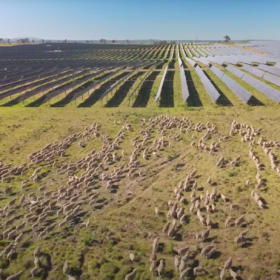The Australian Energy Market Commission’s (AEMC) self-initiated review was published on 30 August 2023, with a number of final recommendations including an accelerated rollout of smart meters, better information for customers ahead of a meter upgrade, new customer protections, and improved data access arrangements for networks and energy customers.
AEMC Chair Anna Collyer said smart meters offer consumers increased visibility into their energy use, allowing them to better understand and manage their bills while also opening up access to new and improved retail service options.
“A number of Australians are already using smart meters to cut power bills, from those who have resources such as rooftop solar, to customers without solar who may be using smart meters to access cheaper tariffs,” Collyer said.
“Smart meters present clear benefits for consumers and form a crucial link for the wider energy system, paving the way for significant advances necessary to reach net zero.”
The accelerated replacement of legacy meters is expected to deliver net benefits of $507 million for national electricity market regions, including New South Wales, Queensland, the Australian Capital Territory, and South Australia.
Collyer said the draft rule is the first step in a broader program of work to modernise and digitise the energy system, with the AEMC committed to progressing further reforms, including customer access to real-time data from smart meters.
”We look forward to receiving a rule change request on customer access to real time data, as recommended by the Review we undertook last year, so that customers can access the full suite of benefits that smart meters offer,” Collyer added.
AEMC proposed reforms under the draft rule:
The draft rule includes two core reforms, so that customers and the broader energy system can access the benefits that smart meters offer sooner:
- Accelerated deployment of smart meters – deploying smart meters to customers faster to achieve cost savings, support a modern, data-enabled energy system, and give customers access to a range of benefits sooner.
- Access to Power Quality Data – improving network access to important power quality information so that they can better manage their networks, reduce network costs for customers, save energy, and minimise network safety risks.
In addition, the draft rule also includes four supporting reforms:
- New customer safeguards – protecting customers from potential cost risks by prohibiting any upfront costs ahead of a smart meter installation, and increasing notification requirements ahead of tariff changes.
- Improving the customer experience – ensuring that customers can access the full suite of benefits that smart meters provide, including by introducing new customer-friendly information requirements.
- Reducing barriers to installation – supporting delivery efficiencies, and therefore cost savings in the accelerated deployment of smart meters.
- Improved meter testing and inspections – helping minimise costs and improve efficiencies for industry and customers.
The proposed rules in the AEMC’s draft determination would commence progressively, beginning 25 July 2024.






By submitting this form you agree to pv magazine using your data for the purposes of publishing your comment.
Your personal data will only be disclosed or otherwise transmitted to third parties for the purposes of spam filtering or if this is necessary for technical maintenance of the website. Any other transfer to third parties will not take place unless this is justified on the basis of applicable data protection regulations or if pv magazine is legally obliged to do so.
You may revoke this consent at any time with effect for the future, in which case your personal data will be deleted immediately. Otherwise, your data will be deleted if pv magazine has processed your request or the purpose of data storage is fulfilled.
Further information on data privacy can be found in our Data Protection Policy.